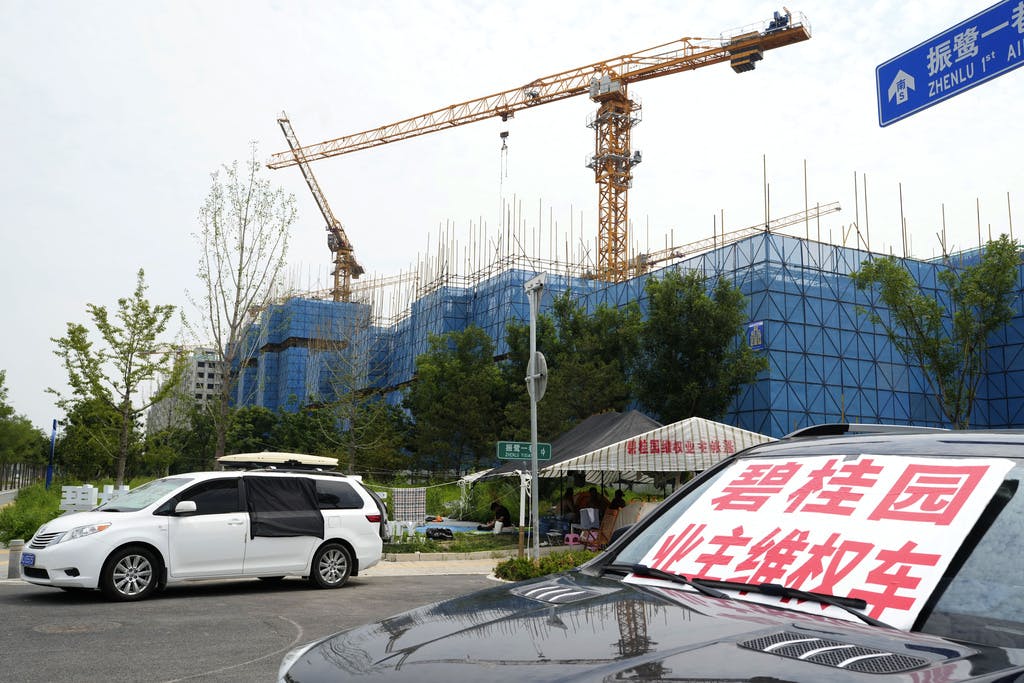House Select Committee on China’s New Strategy Pushes for American Industry, Workers to ‘Win’ Economic Contest with Communist China
The proposed trade policies seek to protect American industry, labor, and national security, but some critics caution against this ‘protectionist path.’

The House Select Committee on China’s strategy to bolster tariffs on Chinese products is drawing divergent responses from leaders in American industry and lobbyists for American farmworkers.
The nearly 150 policy recommendations unveiled this week by the bipartisan committee include escalating levies on Chinese products with the aim of bringing supply chains back home. While heads of industry and labor unions are applauding the proposed strategy for seeking to protect American workers, some lawmakers and lobbyists fear that protectionist policies could cripple domestic industry.
The committee’s sprawling scheme is aimed at “resetting” the US-China economic relationship. It would unravel decades of American policy, including long standing low tariffs on Chinese exports, in the hopes of slowing down a rising Communist China. Despite hopes that engagement would liberalize the Chinese political system, the opposite has taken place since the country joined the World Trade Organization in 2001.
“In response,” the report says, “the United States must now chart a new path that puts its national security, economic security, and values at the core of the U.S.-PRC relationship.” It seeks to stymie American capital into the People’s Republic and strengthen economic partnerships between the US and its allies “while ensuring American leadership for decades to come.”
While tackling competition with Communist China tends to draw applause within the Republican Party, some of its lawmakers and influential agriculture lobby groups have raised concerns that cutting economic ties with the People’s Republic could cripple American farmers’ largest export market.
“I do have concerns about going down a protectionist path, particularly as it relates to agriculture,” Congressman Darin LaHood of Illinois said during a public committee meeting Tuesday where lawmakers presented their strategy. Yet he ultimately voted to support the report and its recommendations.
Chinese economic ambitions have taken a toll on American workers and companies. As the ranking Democrat on the committee, Congressman Raja Krishnamoorthi, pointed out at a hearing in May, the People’s Republic produces 12 times more steel and three times more cars than the United States, whose lead in those sectors was unmatched a few decades ago. “Today, we remain the world’s biggest economy,” he said. “The PRC is the second-biggest economy, and they’re aiming to be number one.”
Trillions of dollars and millions of workers have suffered as a result of “the failed policy of the past,” said a former United States Trade Representative, Robert Lighthizer, in a statement supporting the committee’s strategy. “It crippled many communities and put our national security at risk,” he said. A former speaker of the House, Newt Gingrich, also applauded the lawmakers for “courageously standing up for every hard-working American.”
The path forward, the select committee argues, requires greater investment in critical technologies to counter the People’s Republic’s strides in that realm. Enlisting the cooperation of allies, America should bolster its own exports while reducing dependencies on critical mineral imports and pharmaceutical and medical device supply chains from Communist China. That, the report says, is the key to an American “win.”
“Game-changing” is how the president of the Alliance of American Manufacturing, Scott Paul, describes the committee’s proposals for “resetting the U.S.-China trade relationship and strengthening American manufacturing.” The group, however, noted its opposition to “any efforts to dilute Section 232 national security trade actions or initiate a fast-track free trade agreement with Japan.”
The committee is calling for the Biden administration to effectively implement section 232 of the Trade Expansion Act of 1962, which allows any agency or “interested party” to request that Commerce investigate the impact of certain imports on US national security.
“Recalibrating our relationship with China is critical to finally addressing the illegal subsidization, intellectual property theft and the stranglehold of key aspects of supply chains that make the United States and our allies extremely vulnerable,” asserted the president and chief executive of the National Council of Textile Organizations, Kim Glas.
“Predatory trade practices by China” have endangered the American textile and apparel manufacturing sector, Ms. Glas says. Bolstering US customs enforcement, as the committee urges, could make supply chains more transparent and protect the sector from Chinese intellectual property theft.
The heads of American rare-earth materials companies point to the need for domestic investment in their magnets, which are used in green technologies and the defense industrial base. To bolster the domestic supply chain, asserted the chief executive of MP Materials, James Litinsky, is “essential to our economy and national security.”
Even the shrimp sector has a say. The industry, which is composed of small, family-owned businesses, asks that their trade remedy laws be “vigorously enforced,” says the president of the American Shrimp Processors Association, Trey Pearson, “for us to have a chance to compete with foreign producers and exporters supported by the Government of China.”
Amid heated criticism from Democrats during the meeting, Mr. Krishnamoorthi, as the lead Democrat on the committee, argued that they did not recommend a repeal of China’s normal trade status, but rather a restructuring of tariffs on China. Referencing President Trump’s tariffs in 2018, Mr. Gallagher said, “We’re getting Congress back into the game and allowing Congress to have a voice in it with what would be an annual vote.”
During two war games held earlier this year, the select committee raised concerns about how the US could combat Chinese economic ambitions without causing “severe harm” to its own economy. Yet the committee points to heightened risks associated with expanding US investment in Chinese companies.
“The United States now has a choice,” the report asserts, “accept Beijing’s vision of America as its economic vassal or stand up for our security, values and prosperity.”
___________
This article was updated to clarify the position of the Alliance of American Manufacturing toward the proposals put forward by the select committee.

